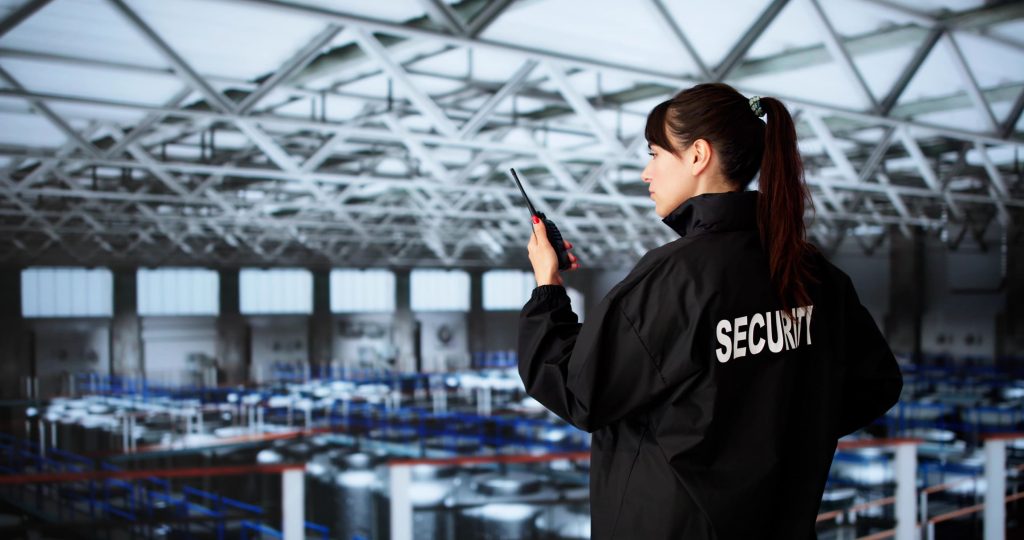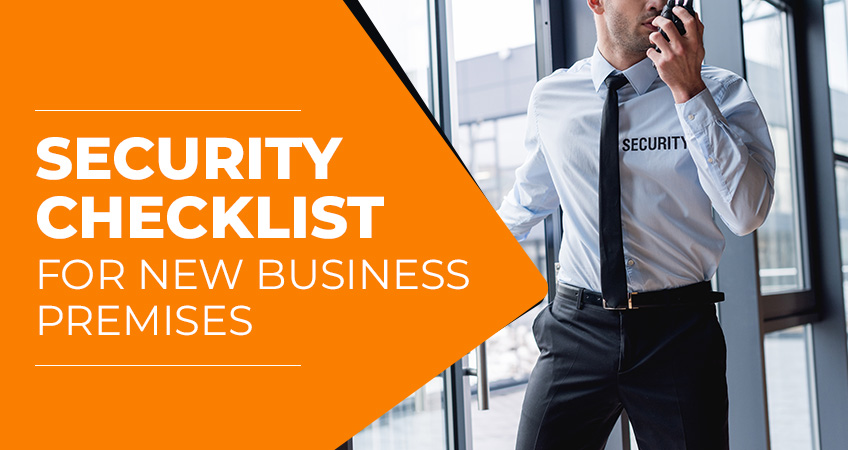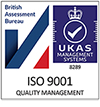Starting a new business is exciting, but it also comes with its fair share of responsibilities. One of the most important aspects that often gets overlooked in the midst of setting up operations is securing your business premises. Whether you’re opening a small retail shop, a bustling office, or a sprawling warehouse, having a comprehensive security checklist ensures you’re not leaving your investment vulnerable to threats.
The statistics paint a sobering picture: businesses without proper physical security measures are significantly more likely to experience break-ins, theft, and vandalism. But here’s the good news – with the right approach and a systematic security checklist, you can protect your premises, employees, and assets from day one.
This guide will walk you through everything you need to know about securing your new business premises, from the basics of perimeter security to advanced surveillance systems. We’ll cover the essential elements that should be on every business owner’s security audit checklist, helping you create a safe environment that gives you peace of mind.
The key components of an effective security audit checklist

Perimeter security: your first line of defence
Your building’s perimeter is where security begins. Think of it as the moat around your castle – the stronger this barrier, the less likely unwanted visitors will attempt to breach it.
Securing entry points
Start by examining every door, window, and potential access point to your premises. High-quality locks aren’t just a good idea; they’re essential. Consider upgrading to deadbolts with at least a one-inch throw, and ensure all door frames are reinforced to prevent kick-ins. Don’t forget about less obvious entry points like basement windows, skylights, or roof access – these are often the weak spots that intruders exploit.
Vehicle access control
If your business has a car park or loading area, installing security gates or barriers can significantly reduce unauthorised vehicle access. These don’t have to be fortress-like structures; even simple rising bollards can deter casual intruders whilst maintaining an professional appearance for your business.
Perimeter alarm systems
Modern alarm systems can monitor your entire perimeter, not just the building itself. Motion sensors placed strategically around your property’s boundaries can alert you to potential threats before they reach your main building. This early warning system is particularly valuable for businesses in isolated locations or those operating outside regular hours.
Access control: managing who gets in
Once you’ve secured the perimeter, it’s time to think about who should have access to different areas of your business. An organization’s security controls aren’t just about keeping people out – they’re about managing who goes where and when.
Modern access systems
Key cards and biometric systems have largely replaced traditional keys in commercial settings, and for good reason. They offer better security, easier management, and detailed logging of who accessed which areas. If an employee leaves or loses their access card, you can simply deactivate it rather than changing all the locks.
Restricted areas
Not every employee needs access to every part of your business. Your accounting office, server room, or inventory storage should have additional security layers. Consider implementing different access levels based on job roles and responsibilities.
Regular access reviews
Your access control system is only as good as your management of it. Set up a monthly review process to ensure access permissions are up to date. Remove access for former employees immediately, and adjust permissions as roles change within your organisation.
Surveillance systems: your digital security team

A well-designed surveillance system acts like having security personnel watching your premises around the clock, even when you’re not there.
Strategic camera placement
CCTV cameras should cover all entry and exit points, but don’t stop there. Consider high-traffic areas, cash registers, inventory storage, and any blind spots around your building. The mere presence of visible cameras can deter potential criminals, whilst hidden cameras can capture evidence if incidents do occur.
Modern camera technology
Today’s security cameras offer features that were science fiction just a few years ago. High-definition recording, night vision, and remote monitoring and mobile access mean you can monitor your business from anywhere. Some systems even include facial recognition and automatic licence plate reading.
Video analytics
Advanced surveillance systems can do more than just record – they can analyse footage in real-time. Motion detection, loitering alerts, and perimeter breach notifications can provide immediate warnings of potential security threats, allowing for faster response times.
Lighting: illuminating potential threats
Proper lighting serves two crucial security functions: it deters criminals who prefer to operate in darkness, and it ensures your surveillance cameras capture clear footage.
Comprehensive lighting coverage
Your premises should be well-lit from dusk until dawn, with particular attention to entry points, car parks, and any areas where someone could hide. LED lighting is cost-effective and provides excellent illumination whilst keeping energy costs manageable.
Motion-activated lighting
Motion sensor lights are particularly effective because they startle potential intruders and alert anyone nearby to movement around your premises. Place these in areas where legitimate foot traffic is minimal during non-business hours.
Security personnel and employee training
Technology is fantastic, but human oversight remains irreplaceable for comprehensive business premises security.
Professional security guards
For businesses with valuable inventory or those located in higher-risk areas, security guards provide an invaluable human element. They can respond immediately to incidents, perform regular patrols, and serve as a visible deterrent to potential criminals.
Employee security awareness
Your employees are part of your security system whether they realise it or not. Train staff on basic security protocols: how to properly lock up, what to do if they notice suspicious activity, and how to handle security breaches. A well-informed team can prevent many security incidents before they escalate.
Additional security measures for comprehensive protection
Have a professional team conduct security audits
Even with the best intentions, it’s easy to miss potential vulnerabilities when you’re focused on running your business. Professional security companies will have a comprehensive checklist that they follow during their audit process, identifying weak points you might have overlooked and recommending improvements tailored to your specific industry and location.
Clear security policies
Develop written security procedures that cover everything from daily opening and closing routines to emergency response protocols. These policies should be easily accessible to all employees and regularly updated as your business grows and changes.
Emergency preparedness
Create comprehensive emergency plans that address various scenarios: break-ins, fires, natural disasters, and medical emergencies. Regular drills ensure everyone knows what to do when seconds count, potentially saving lives and minimising damage to your business.
Protecting your investment starts now
Creating a secure business environment isn’t just about preventing crime – it’s about creating peace of mind that allows you to focus on growing your business. A comprehensive security checklist ensures you’re not leaving anything to chance, protecting your investment, employees, and customers.
Security isn’t a one-time setup; it’s an ongoing commitment that evolves with your business. Regular reviews, updates, and improvements to your security measures will keep your premises protected as threats change and your business grows.
Frequently asked questions (FAQ)
What are the most common security threats for new businesses?
New businesses typically face threats from burglary, vandalism, employee theft, and cyber attacks targeting point-of-sale systems. The specific risks vary by industry, location, and business size. Retail businesses might worry more about shoplifting and armed robbery, whilst office-based companies might prioritise protecting sensitive data and equipment.
How often should I update my security measures?
Review your security measures at least quarterly, with a comprehensive annual assessment. However, update immediately after any security incident, significant staff changes, or business expansion. Technology evolves rapidly, so staying current with security innovations can provide better protection and potentially reduce costs.
What type of security system is best for my business?
The best security system depends on your business type, budget, and specific risks. A small retail shop might need different solutions than a large manufacturing facility. Consider factors like your location’s crime rate, operating hours, number of employees, and what you’re protecting. Professional security companies can assess your needs and recommend appropriate solutions.
Ready to secure your business premises properly?
MEC Security specialises in creating comprehensive security solutions tailored to your specific needs. Our experienced team can conduct a thorough security audit of your premises, identify potential vulnerabilities, and recommend cost-effective solutions that provide maximum protection.
Contact MEC Security today for your free, no-obligation security consultation.

 Call us:
Call us:
 Email us:
Email us:








